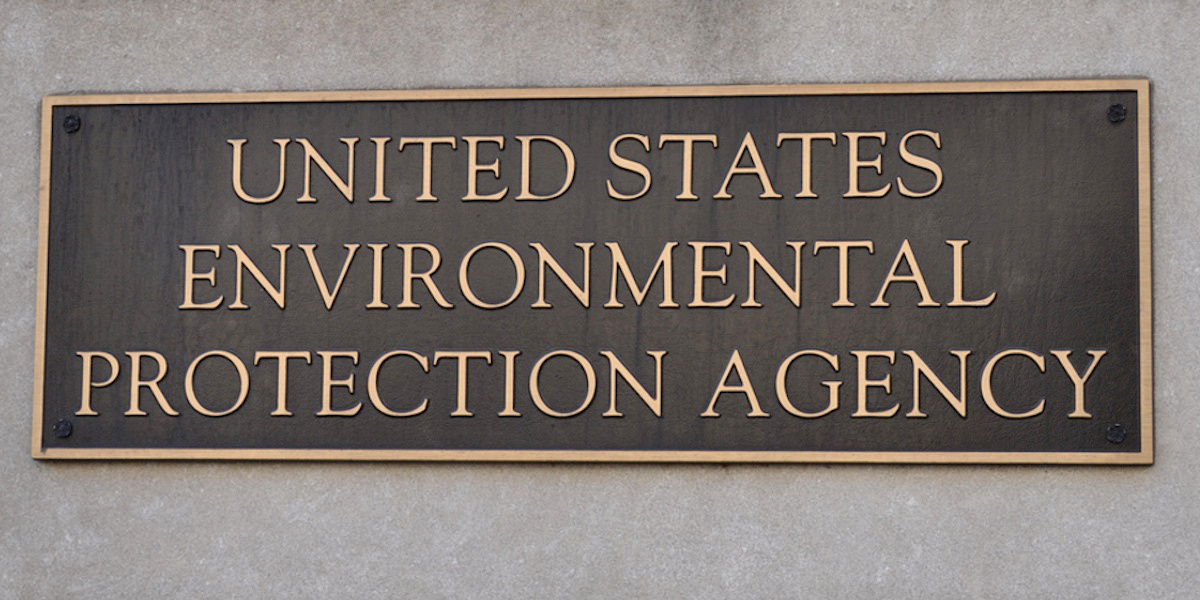
Trump’s Pick for Top EPA Post Under Scrutiny for Deep Ties to Chemical Industry

From
Scott Pruitt to Betsy DeVos, President Donald Trump has notoriously appointed a slew of individuals with serious conflicts of interests with the departments they oversee.
The latest is
Michael L. Dourson, Trump’s pick to head the EPA’s Office of Chemical Safety and Pollution Prevention, the government’s chemical safety program. Media reports reveal that the toxicologist is under intense scrutiny for his extensive ties to the chemical industry and a resumé dotted with some of the biggest names in the field: Koch Industries Inc., Chevron Corp., Dow AgroSciences, DuPont and Monsanto.
After working as a staff toxicologist for the EPA from 1980 to 1994, Dourson founded and ran the
Toxicology Excellence for Risk Assessment (TERA), a nonprofit research group that has been paid by chemical corporations to research and write reports that downplay the health risks posed by their products, the New York Times reports. TERA has since been renamed as the Risk Science Center at the University of Cincinnati, where Dourson is a professor.
According to the Associated Press, Dourson’s research has been “underwritten by industry trade and lobbying groups representing the makers of plastics, pesticides, processed foods and cigarettes.”
Dourson’s Senate confirmation hearing was originally set for Wednesday but has been postponed to a date that has not yet been announced. If confirmed, Dourson would be in charge of regulating chemicals produced by “his old industry friends,”
critics have warned.
Notably, Dourson and TERA was contracted by Dow AgroSciences, the maker of chlorpyrifos, a neurotoxic pesticide that has been shown to harm children’s brains at even very low exposure levels. Dourson and his researchers argued in three papers that there were flaws in peer-reviewed studies that linked delays in fetal development from chlorpyrifos exposure, the AP reports.
In March, the EPA controversially refused to ban chlorpyrifos claiming the science is “unresolved” and decided it would postpone the determination of the pesticide until 2022.
Dourson was also the lead author of a
report funded by Koch Industries that concluded that human exposures to petroleum coke and coal “if any, are well below levels that could be anticipated to produce adverse health effects in the general population.”
Senator Tom Carper (D-DE), the ranking minority member of the Senate Committee on Environment and Public Works panel that will evaluate Dourson’s qualifications was alarmed by Trump’s choice.
“Dr. Dourson’s consistent endorsement of chemical safety standards that not only match industry’s views, but are also significantly less protective than E.P.A. and other regulators have recommended, raises serious doubts about his ability to lead those efforts,” Carper told the Times. “This is the first time anyone with such clear and extensive ties to the chemical industry has been picked to regulate that industry.”
A number of experts and environmental and consumer health groups have also spoken against Dourson. The Environmental Defense Fund has listed a number of further objections, including:
- After the 2014 chemical spill in Charleston, West Virginia, the state hired Dourson’s company, Toxicology Excellence for Risk Assessment (TERA), to convene and manage a health effects expert panel. TERA then appointed Dourson to chair the panel and act as its only spokesperson. The panel’s report failed to disclose that Dourson and TERA had done paid work for both of the companies that produced the chemicals involved in the spill. These conflicts only came to light upon questioning of Dourson by a reporter at the panel’s news conference.
- Dourson and TERA have done extensive work on behalf of the so-called Perchlorate Study Group (PSG), which is actually comprised of producers and users of perchlorate. The work was aimed at reducing the stringency of federal standards. Dourson, who is on EPA’s Science Advisory Board (SAB), was asked to recuse himself from the Board’s 2013 meeting to review EPA’s work to develop a drinking water standard for perchlorate. Immediately upon doing so, Dourson provided “public” comments to the Board based on the work he had done for PSG.
- In 2012, Dourson and TERA, with funding from the American Chemistry Council (ACC), set up and ran a website called “Kids + Chemical Safety.” (This website is now inactive and TERA itself has been migrated to be a center at the University of Cincinnati.) The site was designed to look like a neutral source of advice for parents concerned about chemical safety, but instead mirrored industry talking points about its chemicals and sought to shift responsibility for ensuring safety to the consumer or parent and away from the industry.
“It is not even subtle,” Sheldon Krimsky, a Tufts University professor who studies ethics in science and medicine and has reviewed Dourson’s work, told the AP. “He has chosen to be the voice of the chemical industry. His role as a scientist is simply the role of an industry-hired lawyer—only to give the best case for their client.”
Unsurprisingly, the chemical industry and trade associations have cheered the choice.
“His knowledge, experience and leadership will strengthen EPA’s processes for evaluating and incorporating high quality science into regulatory decision making,” said Jon Corley, the American Chemistry Council’s spokesman.
CropLife America—the main trade and lobbying group for the pesticide industry—called Dourson “a perfect fit.”
“We welcome Dr. Dourson’s nomination,” CropLife America
said on its website. “His extensive experience in risk assessment and science, both in government and private sector make him a valuable addition to the office.”

 233k
233k  41k
41k  Subscribe
Subscribe 